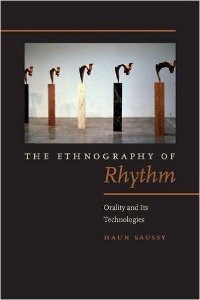 We are delighted to announce the publication by Editions du Cerf of this book by Elisabeth (Clara) Vasseur. It is derived from the doctoral thesis in philosophy she defended in December 2019 at the Institut Catholique de Paris under the title “Marcel Jousse, philosophe, Dialogue avec Bergson.”
We are delighted to announce the publication by Editions du Cerf of this book by Elisabeth (Clara) Vasseur. It is derived from the doctoral thesis in philosophy she defended in December 2019 at the Institut Catholique de Paris under the title “Marcel Jousse, philosophe, Dialogue avec Bergson.”
Here’s the translation of the presentation given on the publisher’s website:
“Jousse – he found a seam, as they say,” confides Bergson in an interview with Lydie Adolphe.
The relationship that Marcel Jousse, researcher, teacher and churchman, maintained with the philosopher Henri Bergson throughout his forty-odd years of teaching is paradoxical, to say the least. Between admiration and rejection, Jousse claimed “his” reading of Bergson. Free and inspiring, often critical, even verging on caricature, this invigorating reading acts in return on the reader, whether a connoisseur of Bergson’s work or not. According to Jousse, the bodily-manual gesture, the global gesture, lies at the heart of the philosopher’s thought. Bergson plays out his thoughts with his hands, with his whole body, before throwing them into his books. Knowledge of the anthropological laws of oral style formulated by Jousse enables us to better grasp the particularity of Bergson’s style, which is close to Péguy’s and resembles the oral style of rhythmo-mimeurs. Jousse and Bergson: two names that left their mark on their era. The strong bond that unites the two thinkers is at the heart of this investigation – which could also be described as a “quest” – that is both philosophical and historical. This book joins the long list of “Bergson readers”, whether or not they are Bergsonians.Élisabeth Vasseur has a PhD in philosophy and lives in Germany. She has contributed to making Marcel Jousse’s work better known, particularly in Germany.
This publication is the culmination of a long period of work by the author, which began in 2016 with the establishment of a co-supervision for her thesis between the Institut Catholique de Paris and the Catholic University of Eichstätt-Ingolstadt in Germany. Her research work was supervised by Professors Emmanuel Falque and Walter Schweidler. She also helped develop a link between the Association Marcel Jousse and the Institut Catholique de Paris, culminating in the reception of the Jousse archives by this institution, and the publication on this occasion of a volume of the journal Transversalités entirely devoted to Marcel Jousse.
Her work received financial support from the Association Marcel Jousse. Through this research, we felt it was important to continue forging links between Marcel Jousse, perceived as an unclassifiable Jesuit researcher, and the intellectual history of the 20th century. If, a century later, his work seems more the fruit of an isolated trajectory, it is important to emphasize that Jousse maintained numerous dialogues during his lifetime, directly or indirectly, with leading French thinkers and researchers of his time.
Rémy Guérinel, for example, showed the importance of his links with his masters at the Collège de France, psychologist Pierre Janet and Abbé Rousselot, founder of experimental phonetics, two important but somewhat forgotten figures.
Clara-Élisabeth Vasseur has had the courage to tackle the philosophical and historical links between Jousse and Bergson, the most renowned French philosopher when Jousse began teaching in 1931. As she explained in a 2020 presentation (available on video for association members), she didn’t do “the thesis on Jousse and Bergson” but “a thesis” on the subject, hoping to arouse interest and be followed by others. With only 3 years to complete her project, she had to choose certain paths and discard others.
Yet her work is not lacking in ambition: the author draws on a sound knowledge of both Bergson’s and Jousse’s work; but she has not stopped at a comparative exegesis of the writings of these two thinkers. In an investigative approach, she has also sought to cross-reference and link what Jousse says about Bergson in his lectures, what Bergson’s collaborator Lydie Adolphe says about Jousse, and traces of this intellectual relationship preserved in the archives of both, published along with other unpublished material in the book’s appendix. The reader will find numerous extracts from lectures on Bergson given by Marcel Jousse at the Sorbonne. One of these lectures is entirely devoted to Bergsonian intuition.
It is to be hoped that this book will help to foster a dialogue between those interested in the work of the anthropologist of gesture and those interested in the work of the philosopher!
Thomas Marshall
Member of the Board of the Association Marcel Jousse



 Memory, Memorization and Memorizer. The Galilean Oral-Style Tradition and Its Traditionists
Memory, Memorization and Memorizer. The Galilean Oral-Style Tradition and Its Traditionists
